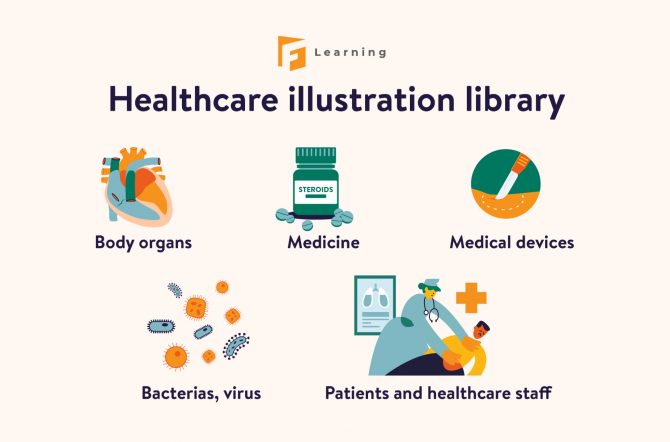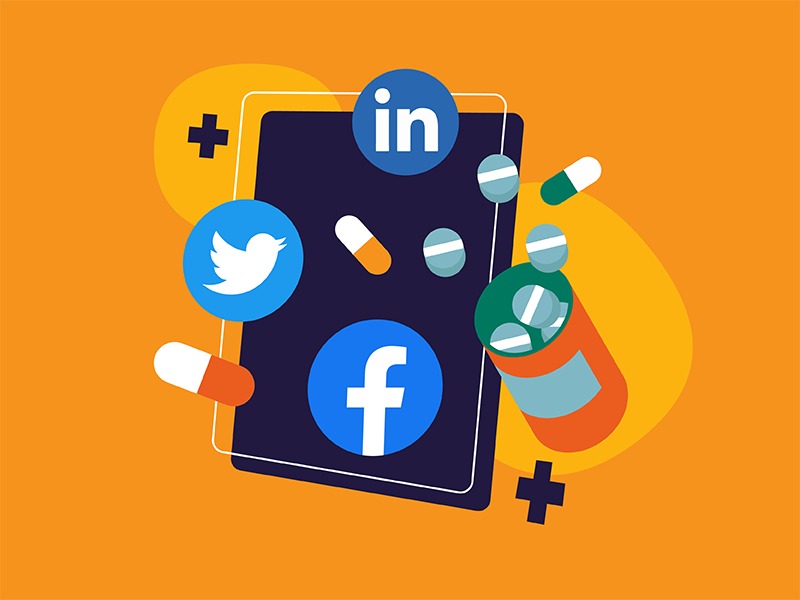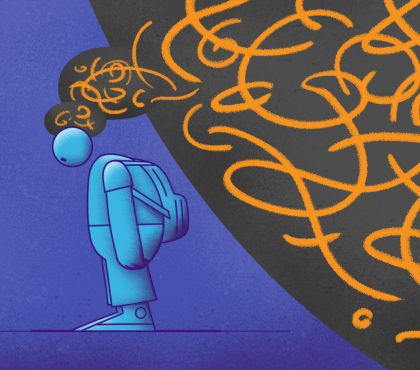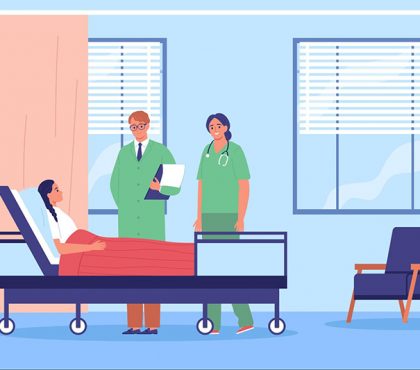We all know that medical animation is a fantastic way to make complex medical topics clear and engaging. But if you’re considering investing in one, you probably wonder how much medical animation costs. So, what contributes to the cost of a detailed, high-quality animation? Let’s break down the various factors influencing the cost.

How Much Does Medical Animation Cost?
In fact, the medical animation cost depends on whether you hire a studio or a freelancer. According to Nanobot Medical, a studio can charge you about $50,000 per minute of animation, depending on some factors such as script, storyboard, voiceover…
Often, a lot of studios provide comprehensive services with a team of writers, designers, scientific advisors, and animators. This ensures a high level of coordination, consistency, and the quality of your final products.
For example, the following 30s animation video costs about $7,500 – $10,800. It offers a full 360-degree view of the heart’s anatomy and also includes the beating heart sound.
On the other hand, hiring a freelancer can be a more cost-effective solution. On Fiverr, you can find the price comes in a wide range, about $200 – $3000. However, its significant drawbacks are the limiting revisions and the potential lack of a cohesive team. These two factors can lead to issues with coordination and quality.

Get the best values
for your project
See how much your project might cost at F.Learning Studio!
The price of producing a high-quality medical animation video can differ greatly, depending on some key factors presented below.
10 Factors Influence Medical Animation Cost
| No | Factor | Description |
| 1 | Complexity of the animation | The level of detail and complexity required significantly impact the cost. Highly intricate animations with detailed anatomical structures or complex physiological processes will require more time and expertise to create, thus increasing the cost. |
| 2 | Quality | Higher-quality animations, including realistic rendering, advanced effects, and intricate motion, generally cost more due to the increased skill and time required for production. |
| 3 | Animation style and techniques | Advanced styles and techniques such as 3D animation can lead to high prices because they require more cutting-edge software and man-hours. |
| 4 | Duration and number of scenes | A longer animation means more scenes, requiring additional planning, storyboarding, animation, and rendering, which contributes greatly to the cost. |
| 5 | Level of interactivity | Interactive elements such as clickable features or user-controlled animations can add to the cost due to the additional programming and design work involved. |
| 6 | Voiceover and audio | Hiring a voice actor and the process of recording, editing, and syncing of audio contribute to the cost of a medical animation. |
| 7 | Revision and feedback process | Revision ensures the quality of the final products, but more changes take more time and work, raising your animation’s price. |
| 8 | Specialized expertise | Animations that require specialized knowledge, such as medical or scientific expertise, may incur higher costs due to the need for skilled professionals who understand the subject matter. |
| 9 | Competitive advantages | To gain some competitive advantages in terms of branding, communication, and education, it’s necessary to invest in a high-quality medical animation. |
| 10 | Project management and coordination | Efficient project management and coordination among team members are crucial for ensuring timely delivery and maintaining quality standards. These aspects may incur additional costs but contribute to the overall success of the project. |
Still too complicated to kick start your animation project?
You are not alone. We have the answers to all of your concern!
Below, we break down these factors to give you an in-depth understanding of how each affects medical animation cost.
1. The complexity of the animation
When it comes to the complexity of the animation, we’re talking about everything from the script and the depth of knowledge required, to the graphics and realism involved. A simple animation has basic graphics and processes, while a complex one requires high accuracy, realistic textures, and detailed movements.
Plus, if your project involves complex scientific concepts or requires high-quality visuals, be prepared for a bigger investment. The more complex it is, the more time and expertise it takes to get it right.
For instance, in terms of visual detail, when compared to a 2D animation video typically using flat images and simpler graphics, this 3D animation provides a more lifelike representation of the respiratory system.
2. Quality
When you aim for quality, you’re investing in sharper graphics, smoother animations, and overall more professional-looking end products. These require top-notch software, talented artists, and meticulous attention to detail. All of these factors are necessary for a complex surgical animation as in the video below.
This definitely doesn’t come cheap, but it’s crucial for accurately conveying medical information. Most importantly, you don’t want your audience second-guessing what they’re looking at because the animation looks subpar!

3. Animation style and techniques
Whether you want a clean, minimalist look or a hyper-realistic approach, the style you choose affects the workload. Different techniques, such as 2D animation versus 3D animation also play a role.
For example, explaining how the heart pumps, you can see that the 3D animation video below is more complicated and highly realistic than a 2D video.
Some might need advanced software and more man-hours, while others are quicker and simpler to produce. Your choice here will dictate the overall feel of the animation and, naturally, the medical animation fees.

4. Duration and number of scenes
The longer the animation and the more scenes it has, the more work it involves. A 30-second medical animated video is way less demanding than a 10-minute animation with multiple, complex scenes.
Each additional scene requires planning, storyboarding, animation, and rendering, which all add up. If you want an elaborate storyline with detailed transitions and numerous visual elements, it will cost more to make your medical animation.

5. The level of interactivity
Interactive elements like clickable features or user-controlled animations can be integrated into courses to enhance learners’ experience. Users could click on specific anatomical structures for explanations, control the animation’s speed, or take part in quizzes and tests to assess their understanding…
They require meticulous planning, specialized expertise, additional programming, and design efforts, therefore contributing to a higher production cost.
For example, this video helps students learn about bacteria in the mouth by zooming in to explore various bacterial species, thanks to the integration of virtual reality technology.
6. Voiceover and audio
A professional voiceover can help explain complex processes clearly, while background music and sound effects enhance the visuals. However, hiring a skilled voice actor, sound engineer, and perhaps even a composer can increase your budget.
Plus, you’ll need to consider the recording, editing, and syncing of audio with the animation. All of them can be time-consuming and make up a large portion of the animated medical video cost.

7. Revision and feedback process
The revision and feedback process is an often overlooked aspect that can significantly impact your animation project. Getting the animation just right usually involves several rounds of feedback and revisions. Each revision means additional work – tweaking graphics, adjusting movements, and re-syncing audio….
This process ensures the final product meets your expectations and accurately conveys the intended message. However, more revisions cost more time and effort, which can finally drive up medical animation video costs.

8. Specialized expertise
When dealing with complex medical topics, you need animators who understand medical science and can accurately depict intricate biological processes. They are medical illustrators or consultants to ensure the content is both visually stunning and scientifically accurate. Though these experts can contribute significantly to the medical animation cost, this investment is crucial for creating credible and effective medical animations.

9. Competitive advantages
Investing in medical animation is a great investment, but it can offer you some competitive advantages in terms of branding, communication, and education. Undoubtedly, high-quality medical animations, such as one explaining drug mechanisms, can set your brand apart.
Furthermore, they can support training programs for medical staff and improve patient education, which ultimately build trust and credibility with both consumers and healthcare professionals. Depending on your purpose, the animation cost may rise and add up your budget.
10. Project management and coordination
Project management and coordination are crucial in medical animation production to manage resources and timelines, ensuring the timely delivery of high-quality animations.
Most medical animation studios have a dedicated production manager who ensures effective management and coordination. He or she is responsible for keeping everything on track, meeting deadlines, and ensuring smooth communication. The production manager is not directly involved in creating animation, but his/her role also contributes to the budget of a project.

7 Tips to Reduce Medical Animation Cost
| No | Tips | Description |
| 1 | Use pre-existing animation assets or templates | Take advantage of pre-existing animation assets or templates can significantly reduce costs because of not creating everything from scratch. |
| 2 | Opt for a simpler animation style | Consider using simpler 2D or 2.5D animations with less detail, as they are more time and cost-effective. |
| 3 | Minimize extraneous details | Prioritize simplicity and focus on the core message to minimize production time and cost and maximize clarity and effectiveness. |
| 4 | Use simple interactive features | Choosing simpler interactive elements over complex ones can help manage expenses while still ensuring quality. |
| 5 | Streamline the process | Ensure efficient project management, clear communication, adherence to a well-defined plan, and regular check-ins. |
| 6 | Make use of AI voice generators | AI voice generators offer a cost-effective alternative to human voiceovers by quickly producing high-quality and natural-sounding voices. |
| 7 | Choose the right partner | Selecting an experienced partner for medical animation projects can lead to cost savings and enhanced quality due to their understanding of the field and efficiency in delivering budget-friendly, high-quality work. |
interested to know more?
Glad you like us! Book a consultation call with us to explore how to kick start your animation project.
1. Use pre-existing animation assets or templates
One great way to cut costs is by using pre-existing animation assets or templates. Instead of creating everything from scratch, you can leverage stock animations or templates that are already available. Many studios and animators offer libraries of pre-made elements that can be customized to fit your needs.
At F.Learning, we have also developed a library with 10,000+ illustrations on healthcare topics such as pharma, organs, health staff, medical devices…. When partnering with healthcare and medical organizations, we realize that it can help save a ton of time as well as medical animation costs. This is because our clients don’t have to pay for the initial design and development.
2. Opt for a simpler animation style
While highly detailed, realistic animations require a lot of time and resources to produce. So think about using 2D or 2.5D animations instead of 3D, or less detailed characters and simple graphics. For instance, if you want to explain basic healthcare procedures like CPR, 2D animation is a better approach compared to resource-intensive 3D animations.
Using basic graphics can also make your message clearer and easier to understand. Plus, it can save you money in the long run.

3. Minimize extraneous details
When planning your medical animation, consider minimizing extraneous details. Every additional element in your animation requires more time and effort to create and refine. Therefore, focus on the core message you want to convey and remove anything that doesn’t directly support it.
This solution not only keeps the cost down but also makes your animation clearer and more impactful. In a nutshell, less is often more. This is completely true when it comes to delivering complex medical information.

4. Use simple interactive features
To keep your expenses manageable, opting for simple interactive elements instead of complex ones can be a good choice. Basic interactions can still captivate your audience and offer a better learning experience without the high cost of advanced features.
For instance, basic clickable areas that provide additional information can be very effective in medical courses without requiring extensive programming. Plus, avoiding more sophisticated interactions like full-scale simulations or virtual reality can also reduce medical animation costs.

5. Streamline the process
A streamlined process involves efficient project management and clear communication from the get-go. To get the most bang for your buck, it’s best to have a well-defined plan and stick to it as much as possible. Regular check-ins and updates are also important to prevent miscommunications and costly reworks. By keeping the process organized and focused, you can avoid unnecessary delays and expenses, ensuring a smoother path from concept to completion.

6. Make use of AI voice generators
A cost-effective alternative to voiceovers is to use AI voice generators. Modern AI tools can produce high-quality, natural-sounding voices that are very similar to human voices. These tools allow you to generate voiceovers quickly and at a fraction of the cost. Plus, you can easily make changes without needing to rehire a voice actor, making revisions simpler and more affordable.

7. Choose the right partner
Last but not least, choosing the right partner for your medical animation project can help save medical animation costs and improve quality. A studio or freelancer with a proven track record in medical animations understands the specifics of the field. They’ll know how to avoid common pitfalls and can provide valuable insights to optimize your project.
Most importantly, experienced partners are often more efficient, delivering high-quality work within budget and on time.

Why F. Learning is the Best Option for Medical Animation
We believe that F.learning is your best option for medical animation. Why? Because we can help you save medical animation costs with our prices at just one-third of the US average.
However, the cost isn’t just for the animation itself. It includes tailored solutions, effective timeline management, and a significant reduction of opportunity costs. Therefore, choosing F.learning is not just about a price tag; it’s a wise investment in your educational journey.
At F.Learning, competitive medical animation pricing comes with high-quality products. With 8 years of experience in medical animation, we ensure that every detail in the animation is meticulously crafted, accurate, and engaging, resonating with your target audience.
And the best part is our solutions are custom-made to fit your needs. We’re always happy to find creative ways to meet your goals, ensuring you receive top-notch animations but still stay within your budget.
They say a video speaks volumes. Check out our portfolio to see what we can offer you.
Conclusion
In conclusion, the medical animation cost can vary widely based on different factors. Knowing and managing these factors can help you make the most of your budget for animation without sacrificing quality or impact. So if you are looking for superb medical animation that’s worth the investment, we are here to deliver the best. Contact us today and see how we can elevate your medical animations!
Email: [email protected]
Fanpage: https://www.facebook.com/f.learningstudio
LinkedIn: https://www.linkedin.com/company/f-learning-studio/

Sean Bui, the founder and creative director of F.Learning Studio, is a respected leader in the e-learning and multimedia production industry. With over 10 years of experience, he has dedicated his career to helping organizations create engaging and impactful learning experiences.
Under his leadership, F.Learning Studio has grown into a trusted partner for organizations in the education, healthcare, and corporate training sectors, producing over 2,000 minutes of educational animation.






